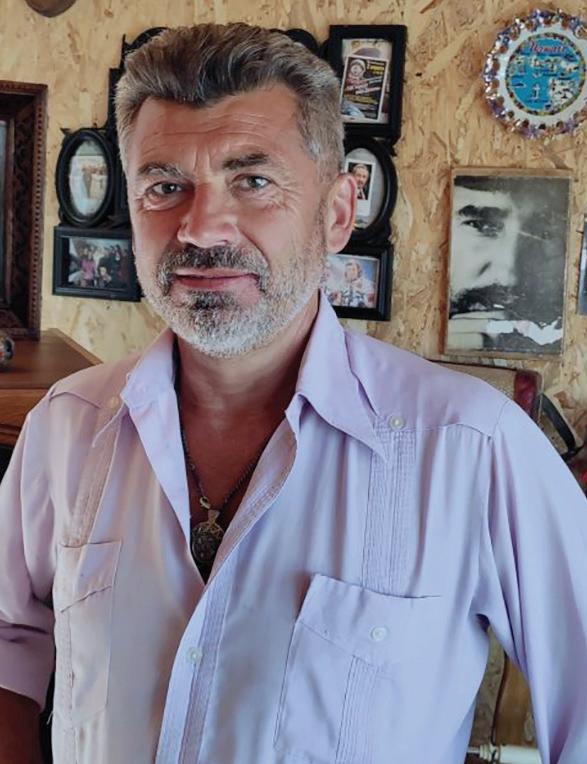
8 minute read
10
HISTORY TIP FIDEL CASTRO'S ALLEGED RUSSIAN PROGENY HIS NAME IS ALEXANDR SERIOGUIN, BUT PEOPLE CALL HIM "CASTRO." HE WANTS TO CREATE A "WORLD REVOLUTION" FOLLOWING IN HIS FATHER'S FOOTSTEPS.
SU NOMBRE ES ALEXANDR SERIOGUIN, PERO LE LLAMAN “CASTRO” Y QUIERE CREAR UNA “REVOLUCIÓN MUNDIAL” SIGUIENDO LOS PASOS DE SU PADRE.
Advertisement
By | Por: BEATRIZ GARCÍA AL DÍA News Content Producer
Alexandr Serioguin in his house in Barbikha, where he shelters a dozen Cubans that he defines as his "sisters and brothers". Photo by Natasha Vázquez / On Cuba News
Alexandr Serioguin en su casa de Barbikha, donde cobija a una decena de cubanos que define como sus "hermanas y hermanos". Foto de Natasha Vázquez / On Cuba News
ENGLISH
Barbikha is a village on Moscow’s outskirts, famous for having the medical center where most Russian presidents are treated. There are also many luxury residences and villas — an oasis for wealthy Muscovites.
However, the house of Alexandr Serioguin, 57, known as "Castro," has three floors half-built and could pass for a museum of the Cuban leader Fidel Castro, filled with memories: cigars, rum, hundreds of photos and souvenirs.
Alexandr — or Sasha, as his mother called him — has claimed for many years to be the biological son of the Cuban dictator, even though most of the genetic tests he assures to have done so far have been mysteriously lost.
“I've tried to do DNA tests, but they're always lost, or something happens. Television has only tried to do it three times,” he tells journalist Natasha Vazquez of On Cuba News.
However, loyal to the legacy of his supposed biological father, the Russian Castro claims to have a duty to his Cuban compatriots.
That is why, during the COVID-19 pandemic, he has welcomed into his home a dozen Cubans who arrived in the country, some in very harsh conditions, and trying to make their way in a Russia that seems to have already forgotten its historical allies.
“The house is big, and no one bothers anyone, there is a place to sleep and something to eat,” says the Muscovite, who defines his tenants as “brothers and sisters” and gives them a roof in exchange for fixing up the house. However, he confesses that he is going through financial hardship.
FIDEL'S RUSSIAN LOVE
The Russian Castro's mother, Valentina, was a young cook who worked in the house where the Cuban leader stayed on his first visit to the USSR in 1963. Everyone, Alexandr recalls, wanted to see the revolutionary leader, and Valentina was in the front row.
“She asked him if he wasn't afraid of the Americans killing him, and he replied that he was only afraid of her blue eyes,” he says. “I was born just nine months after Fidel's stay in Moscow”.
Serioguin always knew that his family had some link to Cuba and Fidel, but nothing more. Until the family moved to Havana, where they lived for sever
ESPAÑOL
Barbikha es una aldea a las afueras de Moscú famosa por tener un centro médico donde se tratan la mayoría de los presidentes rusos. También hay muchas residencias y villas de lujo. Un oasis para los moscovitas adinerados.
Sin embargo, la casa de Alexandr Serioguin, de 57 años y conocido por todos como “Castro”, tiene tres plantas a medio construir y podría pasar por museo del líder cubano Fidel Castro. En ella se arreciman recuerdos de la Cuba castrista: habanos, ron, cientos de fotos y souvenires.
Alexandr -o Sasha, como lo llamaba su madre-, afirma desde hace muchos años ser hijo biológico del dictador, aunque la mayoría de los tests genéticos que asegura haberse hecho hasta el momento se hayan perdido de forma misteriosa -“He tratado de hacer test de ADN, pero siempre se pierden o pasa algo. La televisión solamente ha intentado hacerlo tres veces”, le dice a la periodista Natasha Vázquez, de On Cuba News-.
Sin embargo, fiel al legado de su supuesto padre biológico, el 'Castro ruso' asegura tener un deber para con sus compatriotas en el exilio, y es por eso que durante la pandemia de COVID-19 ha acogido en su casa a una decena de cubanos que llegaron al país algunos en condiciones muy duras y tratan de abrirse paso en una Rusia que parece haber olvidado ya a sus históricos aliados.
“La casa es grande y nadie molesta a nadie, hay lugar donde dormir y algo para comer”, cuenta el moscovita, que define a sus inquilinos como “hermanos y hermanas” y les da un techo a cambio de que arreglen la casa aunque, confiesa, él también está pasando sus penurias financieras.
EL AMOR RUSO DE FIDEL
La madre de Alexandr, Valentina, era una joven cocinera que trabajaba en la casa en la que el mandatario cubano se alojó en su primera visita a la URSS, en 1963. Todo el mundo, recuerda su hijo, quería ver al líder revolucionario y Valentina se situó en primera fila.
“Le preguntó si no tenía miedo de que los americanos lo mataran y él respondió que solo temía a sus ojos azules”, cuenta. “Yo nací justo nueve meses después de la estancia de Fidel en Moscú”.
Serioguin siempre supo que su familia tenía algún vínculo con Cuba y con Fidel, pero nada más.
ENGLISH
al years, and received visits from Castro on at least two occasions.
He found out who his biological father was after a military man told him. Then Valentina had no choice but to tell him the truth, he states.
When the dictator became ill, Alexandr tried to communicate with him as Fidel had been doing with his mother "for many years," but was unsuccessful.
THE WORLD REVOLUTION
Many children are called upon to complete works left behind by their parents. The Russian Castro is not an exception. His mission? "To unite humanity in one family."
According to Alexandr Serioguin, his commune-refuge for Cubans is “a social experiment” that somehow reproduces Fidel’s project for Cuba. He wants to create a "new" system, he says, that is neither socialism nor capitalism and to make a “world revolution” without weapons, only with the powers of the mind and technology.
The Cubans staying at his house get up every morning to work at the nearby construction site and wait for the pandemic to end to rebuild their lives. They look at him, Vázquez says, with astonishment.
Meanwhile, in the house of the generous Russian Castro, they celebrate with rum. They build a pool to swim if it isn't too cold, and there is even a bar called “Cuba”.

ESPAÑOL
Hasta que se mudaron a La Habana, donde vivieron varios años y recibieron visitas de Castro en al menos dos ocasiones.
Si llegó a enterarse de quién era su padre biológico fue porque un militar se lo dijo. Luego a Valentina no le quedó otra que contarle la verdad.
Cuando el dictador enfermó, Alexandr trató de comunicarse con él como lo había estado haciendo Fidel con su madre “durante muchos años”, pero no lo logró.
LA REVOLUCIÓN MUNDIAL
Muchos hijos son llamados a concluir las obras de sus padres y el 'Castro ruso' no es una excepción. ¿Su misión? “Unir a la humanidad en una sola familia”.
Según Alexandr Serioguin, su comuna-refugio para cubanos es “un experimento social” que reproduce de algún modo el proyecto que soñó Fidel para Cuba. Quiere crear un sistema “nuevo”, dice, que no sea ni socialismo ni capitalismo y hacer una “revolución mundial” sin armas, sólo con los poderes de la mente y la tecnología.
Los cubanos alojados en su casa, que se levantan cada mañana para trabajar en la obra cercana y esperan pacientes que acabe la pandemia para poder rehacer sus vidas, lo miran, cuenta Vázquez, con estupefacción.
Mientras tanto, en la casa del generoso Castro se celebran fi esta con ron, se construye una pileta para darse un chapuzón cuando el frío no lo impide, e incluso un bar llamado “Cuba”.
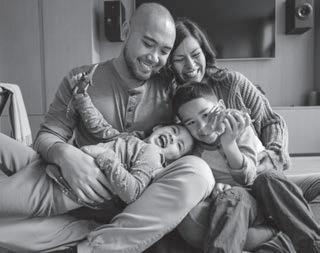
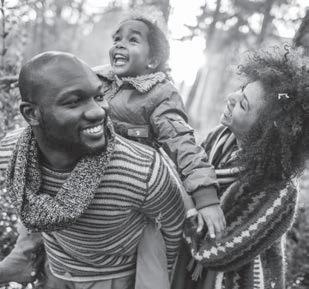

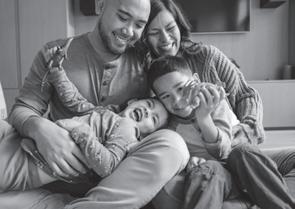
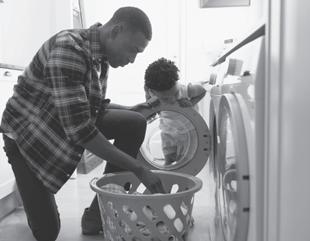
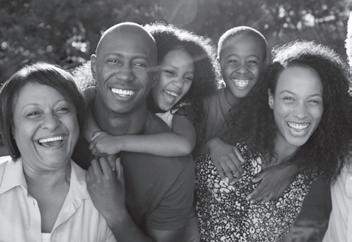
Big or small, the census is for us all. Count all kids and babies!


Children should be included on your 2020 Census form—and not just children related to you, but any kids living at your address most of the time. When babies and children are included, the programs that support them get the funding they need.



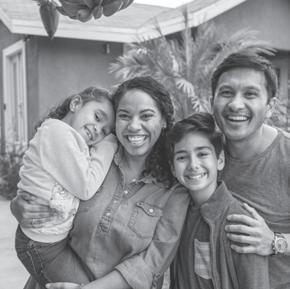
Count your children, grandchildren, nieces, nephews, foster kids, and the children of any friends or relatives staying with you, even if it’s only temporary. Babies count, too! Even if they’re still in the hospital, as long as they were born by April 1, 2020, make sure the person completing the Census for your address includes them on the form .
For more information about the 2020 Census, visit 2020Census.gov or call 844-330-2020. | #2020Census #CountAllKids








